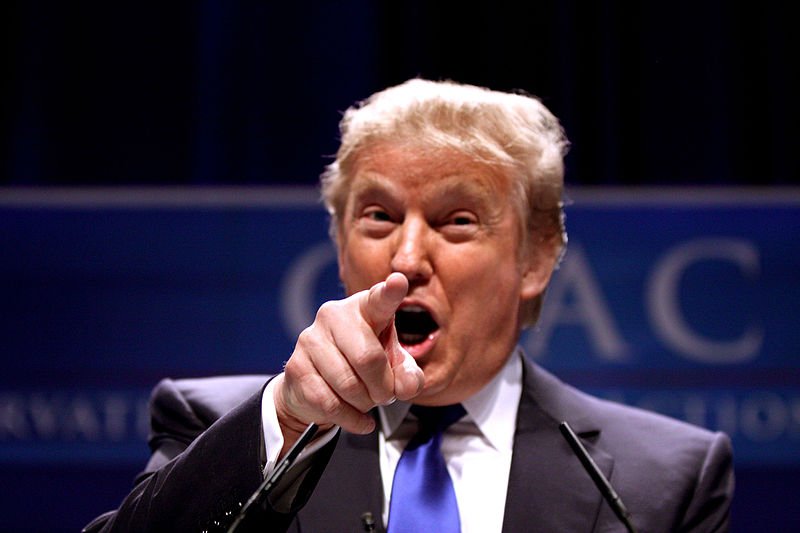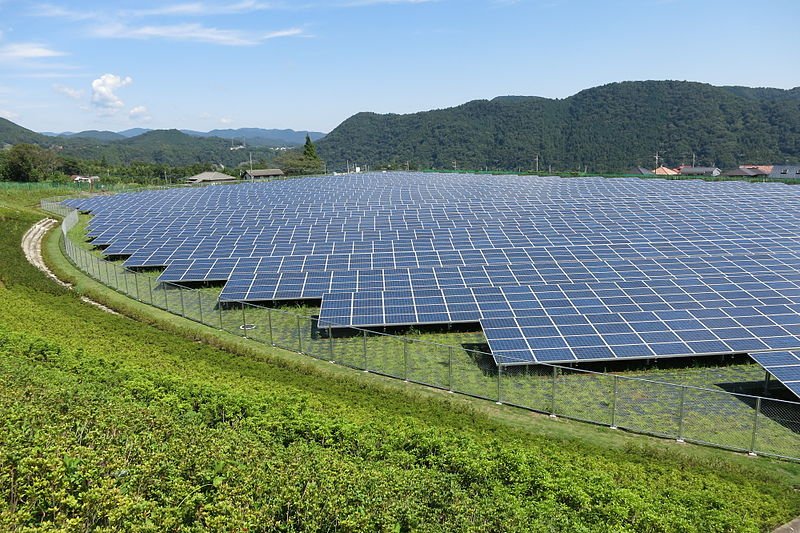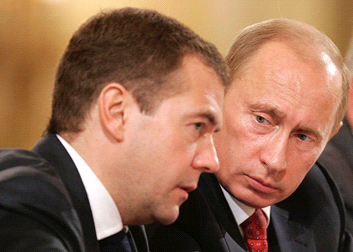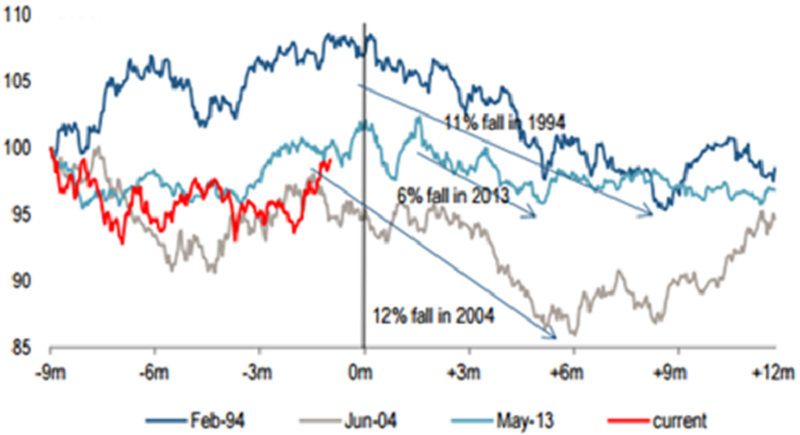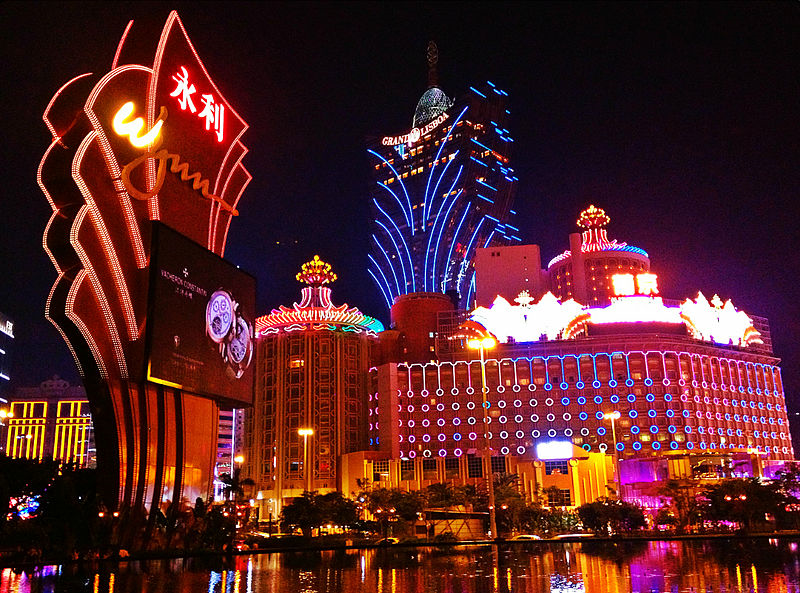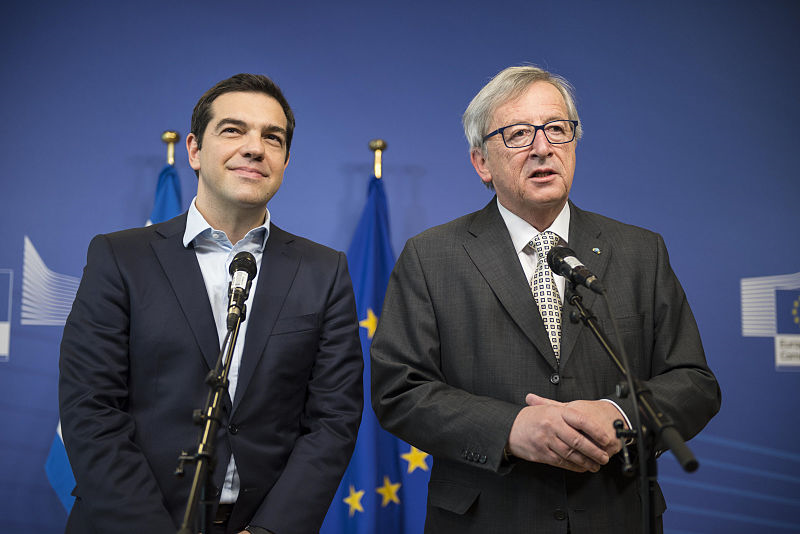Please take some time to read the disclaimer below.
www.ttint.com
(this "Website") (and the information on it) is directed only at persons
who are professional clients and eligible counterparties for the purposes of
the rules and guidance of the Financial Conduct Authority of the United Kingdom
(the "FCA Rules") and at whom this Website (and any information on
it) may be lawfully directed in any relevant jurisdiction. Information on
this Website must not be relied or acted upon by any other persons. If
you have any doubts about your status, you must not access this Website.
Please contact your financial adviser if you require any further
information on your status. Definitions of ‘professional client’ and
‘eligible counterparty’ can be found in the Glossary of the FCA Rules which can
be accessed here: www.fca.org.uk
Please read the Terms & Conditions
of Use below carefully. These set out the terms and conditions for
accessing this Website.
After you have read and understood
these Terms & Conditions of Use, you may click "Accept" to
proceed. By doing so, you:
1.
confirm that you are permitted to access this Website because
you are a professional client or an eligible counterparty for the purposes of
the FCA Rules;
2. acknowledge
expressly that you have read and understood the Terms & Conditions of Use
and agree to abide by them; and
3. confirm that
you are accessing this Website in compliance with the laws and regulations of
the jurisdiction or country in which you are residing.
If you do
not accept these Terms & Conditions of Use and/or you are a retail client
for the purposes of the FCA Rules, you are not permitted to access this
Website.
TERMS &
CONDITIONS OF USE
In these Terms & Conditions of
Use (these “Terms”), references to “you” and “your” are references to any
person using or accessing (or attempting to use or access) this Website.
1. About TT
International
This Website is operated by TT
International Asset Management Ltd. and TT International Investment Management
LLP (which is a direct subsidiary of TT International Asset Management Ltd.) (collectively,
“TT”) and the information on this Website is issued by TT both inside and
outside the United Kingdom. TT International Asset Management Ltd. is a private
limited company and TT International Investment Management LLP is a limited
liability partnership, each having its head office at 62 Threadneedle
Street, London EC2R 8HP. TT International Asset Management Ltd. is
authorised and regulated by the Financial Conduct Authority of the United
Kingdom (the “FCA”) and appears on the FCA Register with firm reference number 915787. TT
International Investment Management LLP is authorised and regulated by the FCA
and appears on the FCA Register with firm reference number 599295. TT
International Asset Management Ltd. is registered as an Investment Adviser with
the U.S. Securities and Exchange Commission (SEC). TT International (Hong Kong) Limited,
which is a direct subsidiary of TT International Asset Management Ltd., is
licensed by the Hong Kong Securities and Futures Commission (SFC) to provide
services to "professional investors" defined in the Securities and
Futures Ordinance and its subsidiary legislation.
2. About
this Website
This Website is broadly separated
into two areas:
(i) a general area which carries
information about TT and investment strategies managed by TT as well as
documentation that is specific to funds which are authorised in accordance with
European Directive 2009/65/EC and offered by TT (the UCITS Funds).In these
Terms, this area is referred to as the “General Area”; and
(ii) a restricted private area which
contains specific information about both unregulated alternative funds and the
UCITS funds, offered by TT (together, the “Funds”). In these Terms, this
area is referred to as the “Private Area”.
In order to access the General Area,
you must first confirm (i) that you are a professional client or an eligible
counterparty for the purposes of the FCA Rules, (ii) your acceptance of these
Terms, and (iii) that you are accessing this Website in compliance with the
laws and regulations of the jurisdiction or country in which you are residing.
Once you have accessed the General
Area, you may then register to access information in the Private Area. To
do so, you must first provide certain information to allow TT to assess your
eligibility to access information about the Funds. Users who TT
considers, in its absolute discretion, eligible to receive access to the
Private Area will be provided with a username and password in accordance with
Clause 11 of these Terms. No persons other than those who have been
provided with a username and password by TT should attempt to gain access to
the Private Area.
3.
Investment Information
The distribution
of the information contained on this Website in certain jurisdictions may be
restricted by law and persons who access it are required to inform themselves
of, and to comply with, any such restrictions.
This Website, and the information
contained on it, is directed only at persons in any jurisdiction or country
where such access to, and use of, the information contained on this Website is
not contrary to local law or regulation. The Funds referred to on this
Website are not available, and prospectuses and other offering materials in
respect of them will not be distributed, to any person resident in the
territory of any jurisdiction where such distribution would be contrary to
local law or regulation.
The information on this Website does
not constitute an offer or solicitation in any jurisdiction in which such an
offer or solicitation is not authorised or to any person to whom it is unlawful
to make such an offer or solicitation. Prospective investors in the Funds
should inform themselves as to applicable legal and regulatory requirements
(including in relation to exchange controls and taxation) in the countries of
their citizenship, residence or domicile. TT and its partners and directors
(as applicable) disclaim all responsibility if you access or download any
information from this Website in breach of any law or regulation of the
jurisdiction or country of which you are a citizen or in which you are residing
or domiciled.
The terms of investment in any Fund
are governed by the documents establishing such terms. In the event of
any inconsistency between the information on this Website and the terms
specified in, or established pursuant to, the documents establishing the terms
of issue or contract, the terms so specified or determined shall prevail.
An application for shares or interests in any of the Funds should only be made
having read fully the relevant prospectus and other offering information for
the relevant Fund. It is your responsibility to use such documentation
and by making an application you will be deemed to represent that you have read
such applicable documentation and agree to be bound by its contents.
Information available on this
Website may constitute a financial promotion for the purposes of the FCA Rules.
4. Accuracy
of Information
The information contained on this
Website (including any expression of opinion or forecast) has been obtained
from, or is based on, sources believed by TT to be reliable, but is not
guaranteed or warranted as to its current validity, accuracy or completeness.
Such information is provided without obligation on the part of TT, its partners
and directors (as applicable) or employees, and on the understanding that
any person who acts upon it or changes his investment position in reliance on
it does so entirely at his own risk.
Opinions expressed represent the
opinions of TT at the date of publication only, reflecting prevailing market
conditions and certain assumptions (which may not prove to be valid), and are
subject to change.
Information posted on this Website
is current only as at the date it is first posted and may no longer be true or
complete when viewed by you. All information contained on this Website
may be changed or amended without prior notice.
5. Material
Interests
TT, its directors and/or its employees may have holdings in the Funds and may
otherwise be interested in transactions that you effect in those Funds.
6. No Advice
This Website is published solely for
informational purposes on the basis that you make your own investment
decisions. This Website has no regard to the specific investment
objectives, financial situation or particular needs of any person.
The
information contained on this Website is not intended to constitute, and should
not be construed as, a personal recommendation or investment advice.
Potential investors in the Funds
should seek their own independent financial advice. TT neither provides
investment advice to, nor receives and transmits orders from, investors in the
Funds nor does it carry on any other activities with or for such investors that
constitute "MiFID or equivalent third country business" for the
purposes of the FCA Rules.
7. Risk
Factors
Investment
in the Funds and other investments referred to on this Website involves
risk. The value of investments and the income deriving from them may go
down as well as up. You may not get back the original amount invested and
may lose all of your investment.
Past
performance is not a reliable indicator of future results.
To the extent that this Website
contains any indications as to future performance, such forecasts are not a
reliable indicator of future performance.
Exchange rates may cause the value
of overseas investments and the income deriving from them to rise and
fall. Tax assumptions may change if the law changes and the tax treatment
applicable to you will depend on your individual circumstances and may be
subject to change in the future. You should consult your own tax adviser
in order to understand the tax consequences of an investment in a Fund.
The risk factors set out above are
not complete and you must refer to the relevant offering documents with respect
to the risks attaching to investment in individual Funds.
8. UCITS
Funds
The UCITS Funds may be registered
or otherwise approved for distribution to the public in one or more European
jurisdictions. The fact of such a registration or approval, however, does
not mean that any regulator has determined that such UCITS Fund is suitable for
all investors. Investors should continue to consider the terms of
investment in any such UCITS Fund carefully and seek professional investment
advice before taking any decision to invest in a UCITS Fund.
Where this Website refers to a UCITS
Fund, this Website will also provide details of where and in which languages
the prospectus and key investor information document, as they may be amended
from time to time, may be obtained or how such documents may be accessed.
The distribution of shares of a
UCITS Fund in Switzerland will be exclusively made to, and directed at,
qualified investors (the "Qualified Investors"), as defined in the
Swiss Collective Investment Schemes Act of 23 June 2006, as amended
("CISA") and its implementing ordinance.
9. US
Persons
The Funds are not offered or sold to
the public in the United States.
TT will provide access to the
Private Area to “U.S. persons”, as defined in Regulation S under the U.S.
Securities Act of 1933, as amended, only if permitted to do so under U.S.
federal and state securities laws.
TT will provide access to the
Private Area to persons that are not “Non-United States persons” as defined in
Rule 4.7 of the U.S. Commodity Futures Trading Commission only if permitted to
do so by the rules of the Commission.
In order to obtain access to the
Private Area, “U.S. persons” and persons that are not “Non-United States
persons”, each as so defined, will be required to provide TT with written
assurances for purposes of compliance with U.S. law. For additional
information, please contact TT according to the procedure specified in Clause
19 of these Terms.
10. Your Use
of this Website
You must NOT use this Website (or
permit or procure others to use it) as follows:
10.1 if you are a retail client for
the purposes of the FCA Rules and/or it is otherwise unlawful for you to access
the information on this Website;
10.2 for any unlawful, improper or
illegal purpose or activity;
10.3 to communicate or receive
information that is obscene, indecent, pornographic, sadistic, cruel, or racist
in content, of a sexually explicit or graphic nature, which promotes or incites
discrimination, hatred or racism or which might be legally actionable for any
reason;
10.4 in a manner intended to
threaten, harass, or intimidate;
10.5 to violate TT’s or any third party's
copyright, trademark, proprietary or other intellectual property rights;
10.6 to impersonate any of TT’s partners
and directors (as applicable), employees or other person or use a false name
while using this Website or implying an association with TT;
10.7 to penetrate TT’s security
measures or other entities' systems ("hacking");
10.8 to generate excessive amounts
of internet traffic, to interfere with TT’s network or other’s use of this
Website or to engage in activities designed to or having the effect of
degrading or denying service to users of this Website or others; and/or
10.9 to introduce viruses, worms,
harmful codes and/or Trojan horses onto the internet or into this Website or
any other entity’s systems and it is your responsibility to ensure that
whatever you download or select for your use from this Website is free from
such items.
When using this Website, you must
comply with all applicable local, national and international laws and
regulations, including those related to data privacy, international
communications and exportation of technical or personal data. It may be
illegal to download the information contained on this Website in certain
countries and TT, its partners, employees, associates and affiliates disclaim
all responsibility if you download any information from this Website in breach
of any law or regulation of the country in which you reside.
11. User
Identification Code
In order to access the Private Area,
you must first apply for a username and password through this Website.
TT may contact you in connection
with your application to access the Private Area as part of the process of
establishing your eligibility to access that part of this Website. You
are responsible for ensuring that any information that you provide to TT as
part of the eligibility check is accurate and kept up to date at all
times. Any changes to the information provided to TT must be notified to
TT immediately.
To the extent that you are provided
with a username and password in order to access the Private Area, you:
(A) shall be solely responsible for
the use of the Private Area accessed through your username and password;
(B) must treat this information as
confidential and you must not disclose it to any third party or allow any third
party to access this Website using your username and/or password;
(C) authorise TT to assume that any
person using this Website with your username and password is you; and
(D) agree to notify TT immediately
if you suspect unauthorised use of this Website or of your username and/or
password.
TT may revoke access to the Private
Area in its absolute discretion at any time without notice.
12.
Termination and Suspension of Access to this Website
TT reserves the right to deny you
access to this Website, or immediately to suspend or terminate your access to
this Website, or to disable any username or password (whether chosen by you or
allocated by us) at any time if your use of this Website (in the sole
discretion of TT) in any manner breaches these Terms or for any other reason.
13.
Intellectual Property Rights
The entire contents of this Website
are subject to copyright with all rights reserved. You may download or
print individual sections of this Website for your personal use and information
only provided that you retain all copyright and other proprietary
notices. You may not reproduce (in whole or in part), transmit (by
electronic means or otherwise), modify, link into or use for any public or
commercial purpose this Website without the prior written permission of
TT. Nothing on this Website should be construed as granting any licence
or right in relation to any of the trademarks of TT or those of its associates
or affiliates or any third party.
14. Linked
Websites
This Website may be linked to third
party websites or contain information provided by third parties. Neither TT nor
its partners or employees make any representation as to the accuracy or
completeness of such websites or information. TT has not and will not
review or update such websites or information and cautions you that any use
made of such websites or information is at your own risk. TT and its partners
and directors (as applicable) and employees do not accept any liability
arising out of the information contained on any linked website or information
on this Website provided by a third party and the use of such sites and
information is at your own risk.
15.
Liability for Use of this Website
Access to this Website is permitted
on a temporary basis and TT reserves the right to withdraw or amend the service
provided on this Website without notice. TT and its partners and directors
(as applicable) and employees do not accept any liability if, for any
reason, this Website is unavailable at any time or for any period.
No representation, warranty or
undertaking is given as to the accuracy or completeness of the information
contained on this Website by TT, its partners and directors (as applicable),
employees or any of its associates or affiliates and no liability is accepted
by such persons for the accuracy or completeness of such information. In
no event will TT, its partners and directors (as applicable), employees or any
of its associates or affiliates be liable to any person (including, for the
avoidance of doubt, persons who are accessing this Website in compliance with
these Terms and those who are not as well as any persons who may be informed of
the contents of this Website) for any direct, indirect, special or
consequential damages arising out of any use of the information contained on
this Website, or on any other hyper-linked site, including, without limitation,
any lost profits, business interruption, loss of programs or data on your
equipment, or otherwise, even if TT is expressly advised of the possibility or
likelihood of such damages.
The information, except as otherwise
stated, on this Website has been prepared, approved and issued by TT and the
information and opinions contained on this Website have been compiled, or
arrived at, in good faith and on the basis of publicly available information,
internally developed data and sources believed to be reliable as at the date of
publication. However, to the extent permitted by law, TT, its partners
and directors (as applicable), employees, associates and affiliates hereby expressly
exclude all conditions, warranties, representations and other terms which might
otherwise be implied by statute, common law or the law of equity and any
liability for any direct, indirect or consequential loss or damage of any kind
incurred by any user in connection with this Website or in reliance on the
information or opinions contained on it, or in connection with the use,
inability to use, or results of the use of this Website or any websites linked
to it or materials posted on it. This does not affect the liability of
any person for any loss or damage which cannot be excluded or limited under
applicable law.
The internet is not a completely
reliable transmission medium and neither TT, its partners and directors (as
applicable), employees or any of its affiliates or associates accepts any
liability for any data transmission errors such as data loss or damage or
alteration of any kind or for the security or confidentiality of information
transmitted across the internet to or from TT or any of its associates or
affiliates. Any such transmission of information is entirely at your own
risk.
Nothing in these Terms is intended
to exclude or restrict any duty or liability that (i) TT has to its customers
under the "regulatory system" in the United Kingdom (as such term is
defined in the FCA Rules); (ii) may arise under U.S. federal or state
securities laws; or (iii) otherwise may not be excluded or restricted as a
matter of applicable law.
16. Cookies
TT takes the privacy of any personal
information you may provide to it through this Website seriously. A
"cookie" is a piece of information that is saved to your computer's
hard disk by the web server. Cookies do not contain any personal
information about you and cannot be used to identify any individual user.
Confirmation of reading and accepting these Terms will place a cookie on your
computer's hard disk. This will facilitate your navigation of this
Website by not showing these Terms again during this browser session. It
will also allow TT to record your visit and may be used to evaluate users’ use
of this Website and to compile statistical reports on Website activity for
TT. This cookie will remain on your computer unless it is removed or you
set your browser not to accept cookies, however, if you do this, you may not be
able to use the full range of services available on this Website. To find
out more about cookies including how to control and delete them visit www.aboutcookies.org.
17. Data
Protection and Privacy
TT collects certain personal
information about you such as your name, address, telephone number, email
address details and other information when it is voluntarily submitted to TT on
this Website, including in connection with its registration procedures for
access to the Private Area. TT uses this information to ensure compliance
with its obligations under the UK regulatory regime, the General Data
Protection Regulation, any other relevant data privacy regulations and for its
own internal purposes.
Please note that by submitting
personal information you are consenting to such information being processed for
the purposes referred to above. You also agree that TT has the right to use and
store such data on its internal systems and to transfer it to its associates
and affiliates, whether inside or outside the European Union, for the purpose
of providing services to you. You should also be aware that the level of
protection in relation to the processing of personal data may not be the same
in countries outside the European Union as in the United Kingdom. For more
information on how TT will use your personal information, please see the
relevant Privacy Notice found here.
18. Law and
Variation
This Website is established in
England by TT in accordance with, and these Terms and any non-contractual
obligations arising from or connected with them shall be governed by, English
law and these Terms shall be construed in accordance with English law. A
condition of using this Website is that in the event of any dispute or
proceeding you irrevocably submit to the exclusive jurisdiction of the English
Courts and waive any objection to proceedings in such courts on the grounds of
venue or on the grounds that the proceedings have been brought in an
inconvenient forum.
TT may revise these Terms at any
time and the current version of these Terms may be viewed at any time through
this Website, please see the Legal Notice. You are expected to review these
Terms from time to time to take notice of any changes TT makes, as they are
binding on you. If any provision of these Terms is held by any court or
competent authority to be illegal, void, invalid or unenforceable under the
laws of any jurisdiction, the legality, validity and enforceability of the
remainder of these Terms in that jurisdiction shall not be affected and the
legality, validity and enforceability of the whole of these Terms in any other
jurisdictions shall not be affected.
Each time you use this Website, a
condition of use is that you comply with these Terms.
19. Contact
Us
You can contact TT at: T: +44 20
7509 1000, F: +44 20 7509 1289, or by email to info@ttint.com.
TT International Asset Management
Ltd.
TT
International Investment Management LLP
62 Threadneedle Street, London, EC2R 8HP, England
© 2020 TT International
Authorised and regulated in the UK by the Financial Conduct Authority
